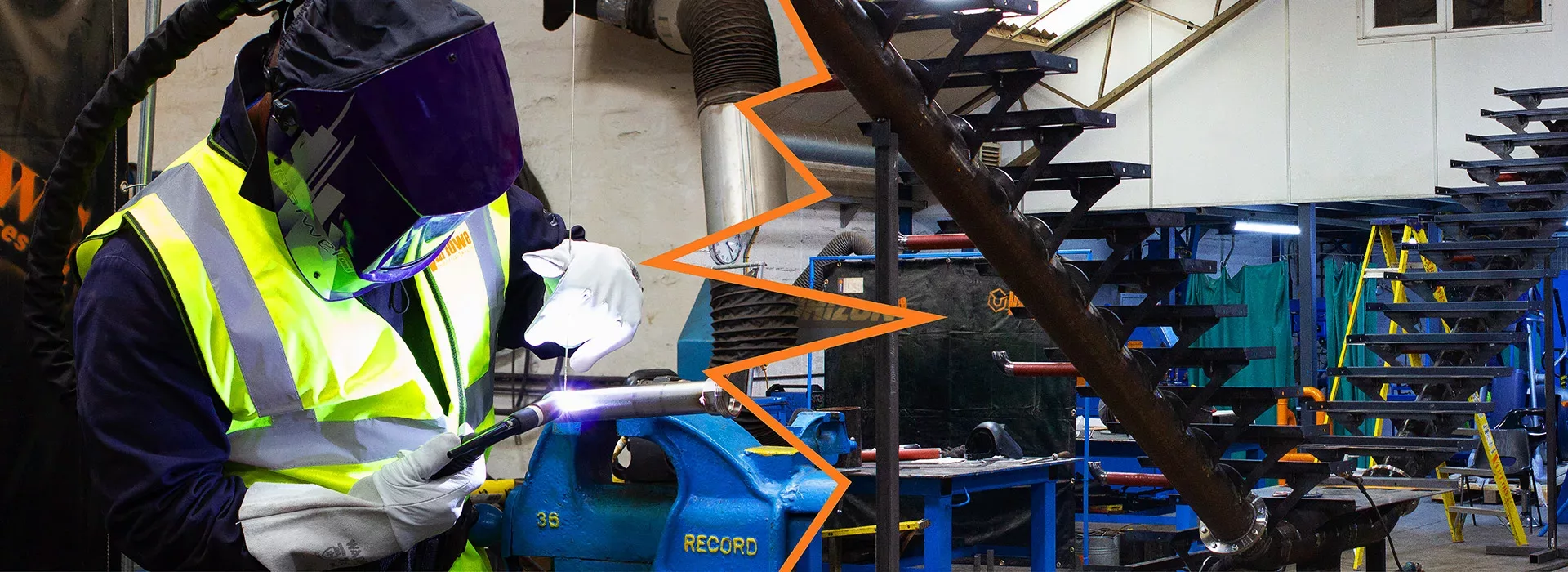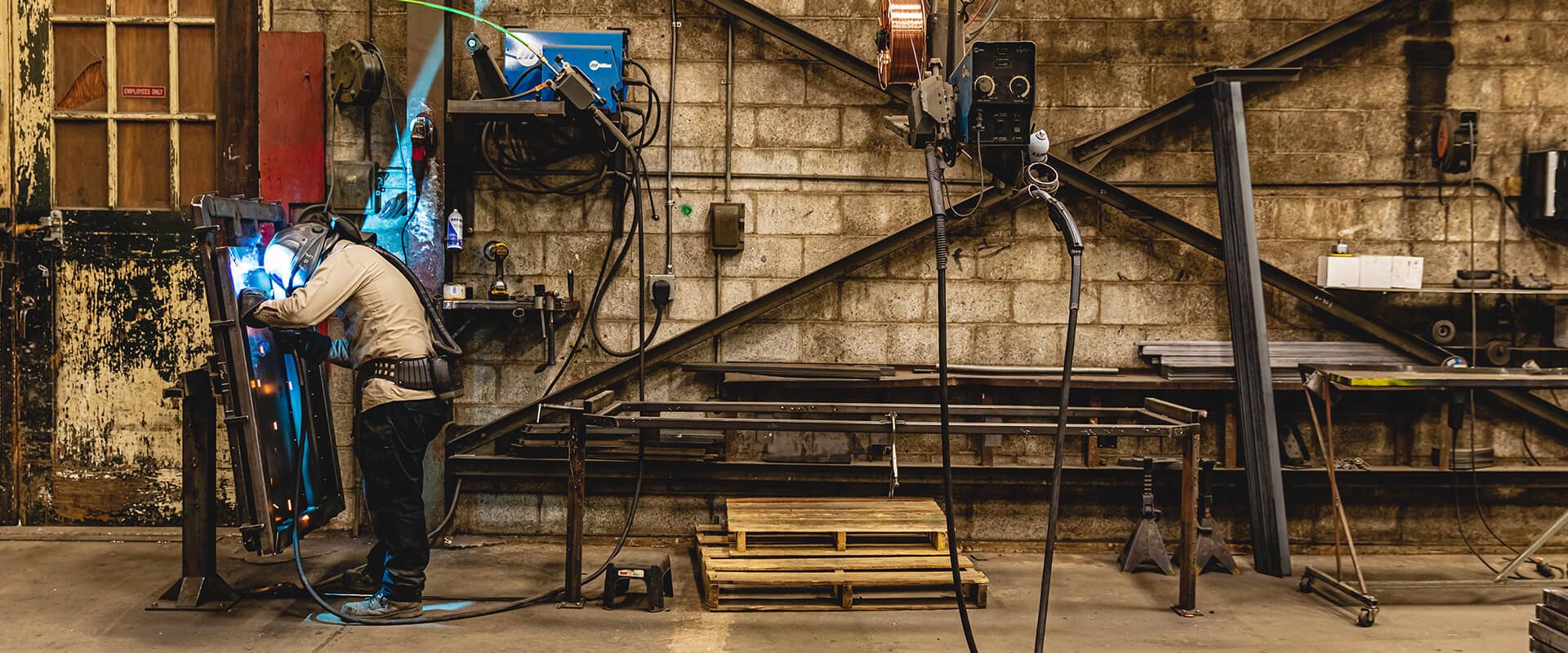Everything about Welding: Key Insights Into Techniques and Finest Practices for Success
Welding incorporates a variety of methods, each matched for specific products and applications. Recognizing these methods, such as GMAW, SMAW, and TIG, is important for accomplishing ideal results. The best devices and safety practices can not be neglected. As preparation and fixing play essential functions in the welding process, mastering these elements can considerably boost the top quality of the last item. What are the essential factors that guarantee a successful weld?
Comprehending Different Welding Strategies
Welding methods encompass a variety of techniques, each suited to particular applications and products. Among the most common techniques are Gas Metal Arc Welding (GMAW), Shielded Steel Arc Welding (SMAW), and Tungsten Inert Gas Welding (TIG) GMAW, additionally referred to as MIG welding, is popular for its rate and adaptability, making it suitable for thin products. SMAW, or stick welding, is favored for its simpleness and performance in outside environments, especially with thicker metals. TIG welding uses precision and control, making it appropriate for intricate job and non-ferrous metals (Montana Mobile Welding and Repair). Each method has its one-of-a-kind benefits and factors to consider, enabling welders to choose the best technique based upon the project's needs, material kind, and preferred outcomes. Comprehending these strategies is vital for effective welding
Vital Welding Tools and Tools
While different welding strategies require details skills, the appropriate devices and devices are similarly essential for accomplishing high quality results. Essential welding tools consists of welding makers, which differ relying on the strategy-- such as MIG, TIG, or stick welding. Protective equipment, consisting of safety helmets, aprons, and gloves, guarantees security and comfort throughout the process. Furthermore, components and clamps assist safeguard products in area, ensuring precision in welds. Consumables like welding poles, cord, and securing gas are likewise critical elements that affect the top quality of the weld. Tools such as mills and cutters promote surface area preparation and post-weld completing, contributing to an expert result. Investing in premium equipment ultimately boosts the performance and performance of welding tasks.
Safety And Security Practices in Welding
Correct safety techniques are vital in the welding industry to protect employees from prospective hazards. Welders have to use suitable individual safety devices (PPE), consisting of helmets with proper shading, handwear covers, and flame-resistant clothes. Sufficient ventilation is vital to decrease direct exposure to harmful fumes and gases generated throughout the welding procedure. In addition, workers should be learnt the proper handling of welding devices to stop crashes. Fire precaution, such as maintaining combustible products away from the welding location and having fire extinguishers readily available, are required. Normal inspections of devices and workspaces can assist recognize potential dangers prior to they cause accidents. By sticking to these safety methods, welders can create a more secure working atmosphere and minimize dangers associated with their profession.
Preparing Products for Welding
Preparing materials for welding is a vital action that considerably affects the quality and integrity of the last item (Montana Mobile Welding and Repair Belgrade Fabrication). Appropriate prep work entails cleaning the surface areas to get rid of contaminants such as dirt, rust, and oil, which can endanger the weld. Strategies such as grinding, fining sand, or using solvents are commonly employed to attain a tidy surface area. In addition, ensuring that the products mesh snugly is vital; spaces can cause weak welds. It's likewise essential to take right into account the positioning and positioning of the parts, as this will certainly impact the simplicity of welding and the final end result. Choosing the ideal filler product and making sure compatibility with the base metals is vital for achieving solid, long lasting welds.
Tips for Getting High-Quality Welds
Achieving premium welds needs focus to information and adherence to finest techniques throughout the welding process. Appropriate joint preparation is vital, ensuring surface areas are free and tidy from pollutants. Picking the ideal filler product and welding technique based upon the base metals is crucial for optimal bonding. Maintaining constant travel speed and angle while welding can promote and prevent issues uniformity. In addition, regulating warm input is crucial; too much warm can cause bending and compromised joints. If required, on a regular basis evaluating the welds during the procedure allows for immediate changes. Lastly, employing proper post-weld therapies, such as cleansing and anxiety relief, can improve the durability and integrity of the weld, eventually making certain an effective end result.
Repairing Common Welding Issues
Welding often presents obstacles that can impact the top quality and stability of the last item. Usual problems such as porosity, irregular weld grains, and getting too hot can occur, each article calling for certain troubleshooting methods. Recognizing these issues is necessary for welders to improve their skills and accomplish view it perfect outcomes.
Porosity Issues Described
Although porosity can usually be overlooked, it remains an essential issue in welding that can compromise the integrity of a finished product. Porosity refers to the visibility of little gas pockets within the weld bead, which can deteriorate the joint and lead to early failure. This trouble typically emerges from contaminants, wetness, or improper protecting gas coverage during the welding procedure. To mitigate porosity, welders need to confirm that the base materials are dry and clean, utilize suitable securing gases, and maintain consistent welding specifications. On a regular basis inspecting the devices and setting can additionally help recognize potential issues before they show up in the weld. Attending to porosity effectively is necessary for attaining strong, sturdy welds that meet high quality standards.

Irregular Weld Beads
Irregular weld grains can greatly affect the quality and toughness of a completed item. Different variables add to this problem, including inappropriate travel rate, inaccurate amperage settings, and irregular electrode angles. When the welder moves also swiftly, a grain may appear slim and lack infiltration, while relocating also slowly can create excessive build-up. Furthermore, utilizing the incorrect amperage can cause either damaging or extreme spatter, both of which compromise weld integrity. The welder's strategy, such as inconsistent lantern movement, can additionally result in irregular bead look. To reduce these troubles, welders ought to concentrate on keeping steady, regulated activities and making certain appropriate devices setups to achieve uniformity in their welds. Consistency is key to attaining reputable and solid welds.
Overheating and Warping Issues
Too much warmth during the welding process can cause significant getting too hot and deforming concerns, impacting the architectural integrity of the workpiece. These issues often materialize as distortion, which can endanger placement and fit-up, making further assembly challenging. Elements adding to overheating consist of the choice of welding parameters, such as voltage and travel rate, as well as the sort of product being welded. To alleviate these concerns, welders ought to keep consistent traveling speed and suitable warm input while checking the workpiece temperature level. Additionally, pre-heating or post-weld warm therapy can aid reduce stress and anxieties brought on by fast cooling - Belgrade Welding. Routine assessment and adherence to finest methods are essential in preventing getting too hot and ensuring the durability and reliability of welded frameworks
Often Asked Concerns
What Are the Profession Opportunities in the Welding Industry?
The welding sector uses diverse job possibilities, including positions as welders, teachers, find out here now engineers, and assessors. Professionals can function in manufacturing, construction, aerospace, and auto markets, gaining from solid demand and affordable salaries in numerous roles.
Just How Can I Improve My Welding Rate Without Sacrificing Top Quality?
To enhance welding rate without compromising top quality, one must exercise efficient strategies, maintain devices, optimize settings, and improve hand-eye coordination. Routine training and looking for feedback can likewise significantly add to accomplishing much faster, high-grade welds.
What Qualifications Are Available for Welders?
Many certifications exist for welders, consisting of those from the American Welding Culture (AWS), the National Center for Building Education And Learning and Research Study (NCCER), and numerous industry-specific companies. These credentials improve employability and demonstrate ability proficiency.
Exactly How Does Welding Affect the Characteristics of Metals?
Welding affects the buildings of metals by modifying their microstructure, which can bring about modifications in strength, firmness, and ductility. Warmth input and air conditioning rates during the procedure significantly affect these product attributes.
Can I Bonded Dissimilar Metals With Each Other?
